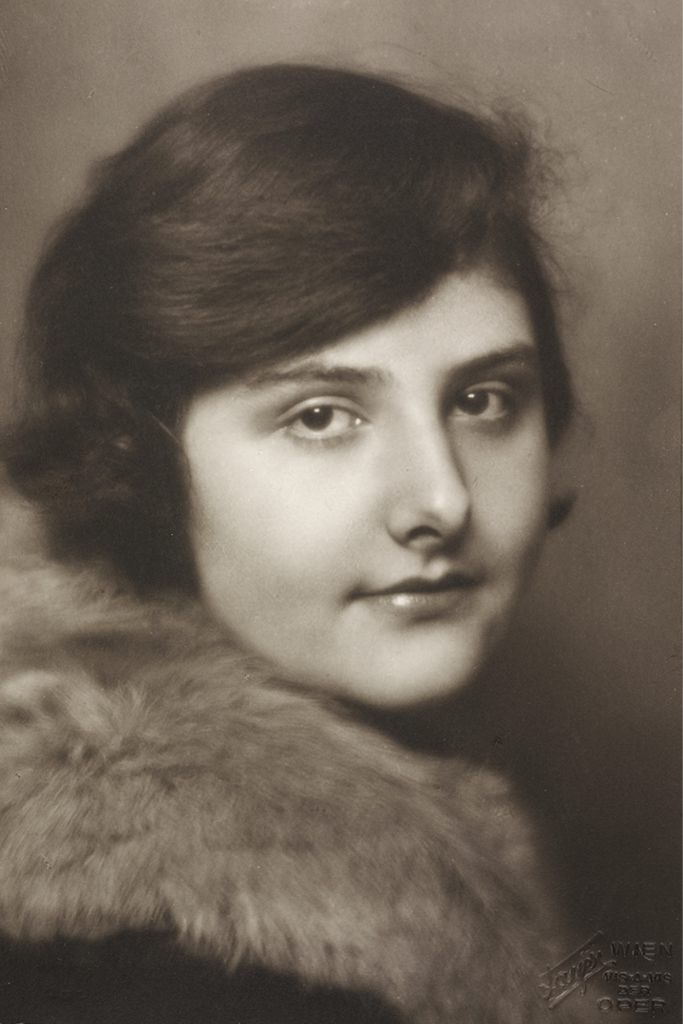In December 2023, a resolution by the University Board approved a new name for the Joseph Hellmesberger Department of String Instruments, Guitar and Harp in Music Education, which will henceforth be known as the Alma Rosé Department of String Instruments, Guitar, and Harp in Music Education—making it the first mdw department to be named after a woman.

“It’s been a long process, but we’re very pleased with the outcome,” emphasises department head Georg Hamann. It was around one and a half years ago that renaming the department first became a topic. Though its former namesake is still a revered figure, many felt that using his name was no longer appropriate in the present day on account of how it failed to adequately represent the diverse groups of instruments taught at the department. But why, then, did the choice once again fall upon a representative of an instrument? It’s a question to which Hamann has a clear response: “There were lots of suggestions, but Alma Rosé emerged as the clear winner of our secret ballot vote because the significance of her achievements goes far beyond that of any one instrument. She accomplished something of pedagogical value and ultimately used music to save lives.”
She accomplished something of pedagogical value and ultimately used music to save lives.
Georg Hamann, department head
Born in Vienna on 3 November 1906 as the daughter of violinist and Rosé Quartet leader Arnold Rosé and Justine Mahler (a sister of Gustav Mahler), Alma was named after her aunt and godmother Alma Mahler. Though she managed to build a successful musical career quite early on, with numerous appearances in Austria and internationally as a soloist and in various orchestras, Austria’s annexation by Nazi Germany brought it all to an abrupt end. 1939 witnessed her initial escape. However, following periods spent in England and the Netherlands, she was ultimately arrested and imprisoned in France in late 1942.1 Deportation to Auschwitz followed in July of 1943. There, August 1943 saw Alma Rosé assume leadership of the now-famous Women’s Orchestra of Auschwitz, which consisted of female concentration camp prisoners; in this position, she managed to rescue the lives of numerous women. The formation of this all-female orchestra had already taken place in May of 1943 at the command of Maria Mandl, an SS superintendant looking to improve her chances of being promoted. The Women’s Orchestra was required to play marches or even entire concerts on various occasions at the camp. Its musicians had to make themselves available to the SS leadership at any time, also giving private concerts if requested. Alma Rosé hence set about rehearsing a broad repertoire with her musicians that came to include around 200 different pieces, transforming an ensemble comprised of mostly very young amateur musicians into a functioning orchestra. Thanks to her persistence, she succeeded in having up to 50 women (predominantly of Jewish descent) admitted to the ensemble. Those women who failed to audition convincingly were brought on board as copyists—thus ensuring their survival, as well.2 Alma Rosé died at the Auschwitz concentration camp during the night of 4–5 April 1944. To this day, the cause of her death remains somewhat unclear. The Women’s Orchestra, however, played on despite having lost their leader—and most of the orchestra’s women ultimately survived their imprisonment.3
The intent is now to honour this exceptional musician’s activities and actions not just with the department’s new name but also by ensuring her example’s presence in everyday academic life. “We’d like to uphold her legacy with measures such as placing a focus on women composers persecuted by the National Socialist regime, and we’re also planning world premières of specific works. In this way, our new name will have a lasting impact on our teaching,” says department head Hamann. The department’s formal renaming will be punctuated by a “Celebration for Alma” on 18 March in the Neuer Konzertsaal at the mdw’s Rennweg location.
Event tip:
Celebration for Alma
18 March 2024, 6:00 p.m.
Neuer Konzertsaal, Rennweg 8, 1030 Vienna
- Cf. Heidemarie Uhl, Michaela Raggam-Blesch: “Die Wiederentdeckung von Alma Rosé”, in Michaela Raggam-Blesch, Monika Sommer, Heidemarie Uhl, eds., Nur die Geigen sind geblieben, p. 34–36, Vienna 2019.
- Cf. Michaela Raggam-Blesch, Monika Sommer, Heidemarie Uhl, eds., Nur die Geigen sind geblieben, p. 164–174, Vienna 2019.
- Cf. Michaela Raggam-Blesch, Monika Sommer, Heidemarie Uhl, eds., Nur die Geigen sind geblieben, p. 182–183, Vienna 2019.

